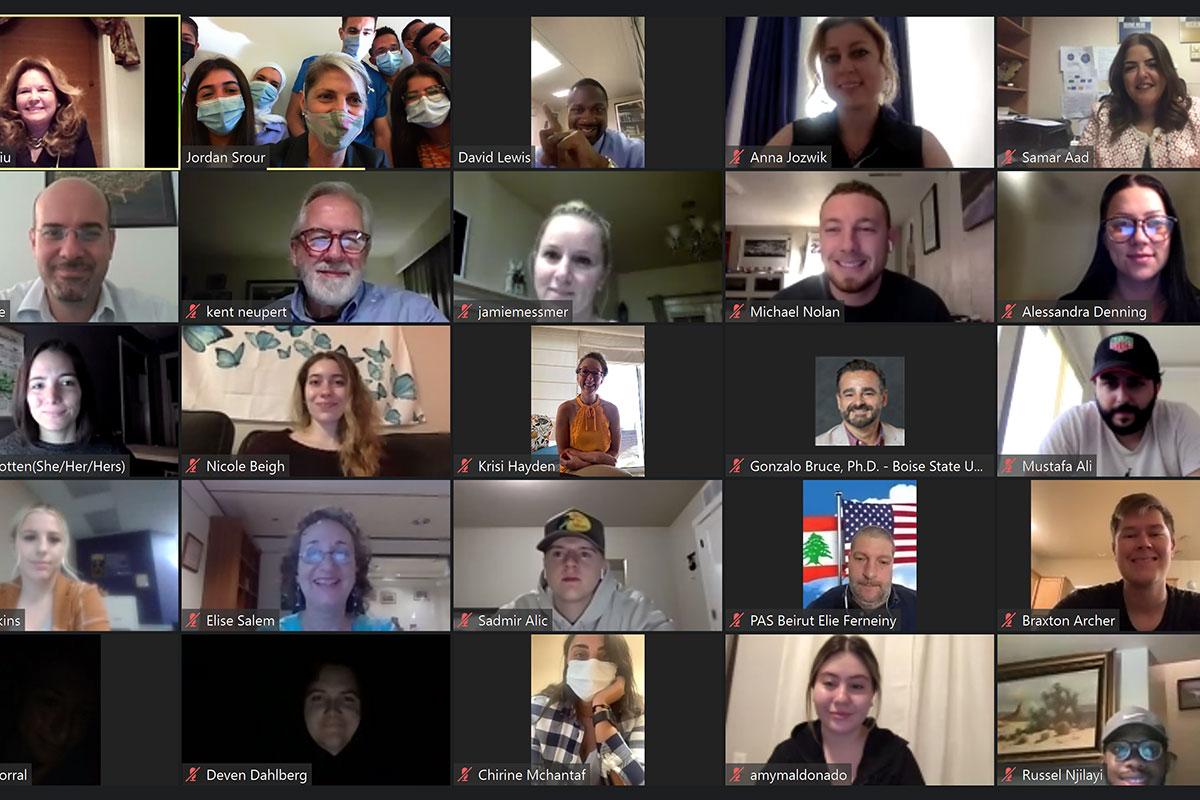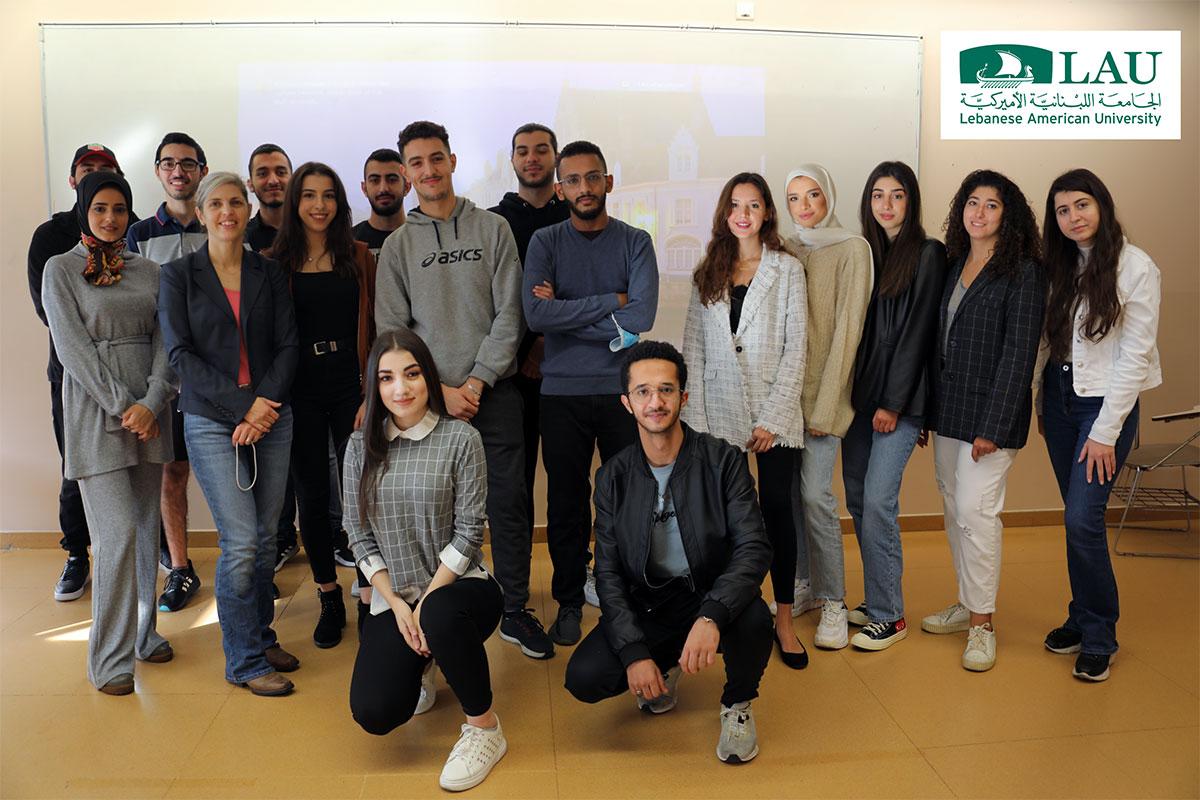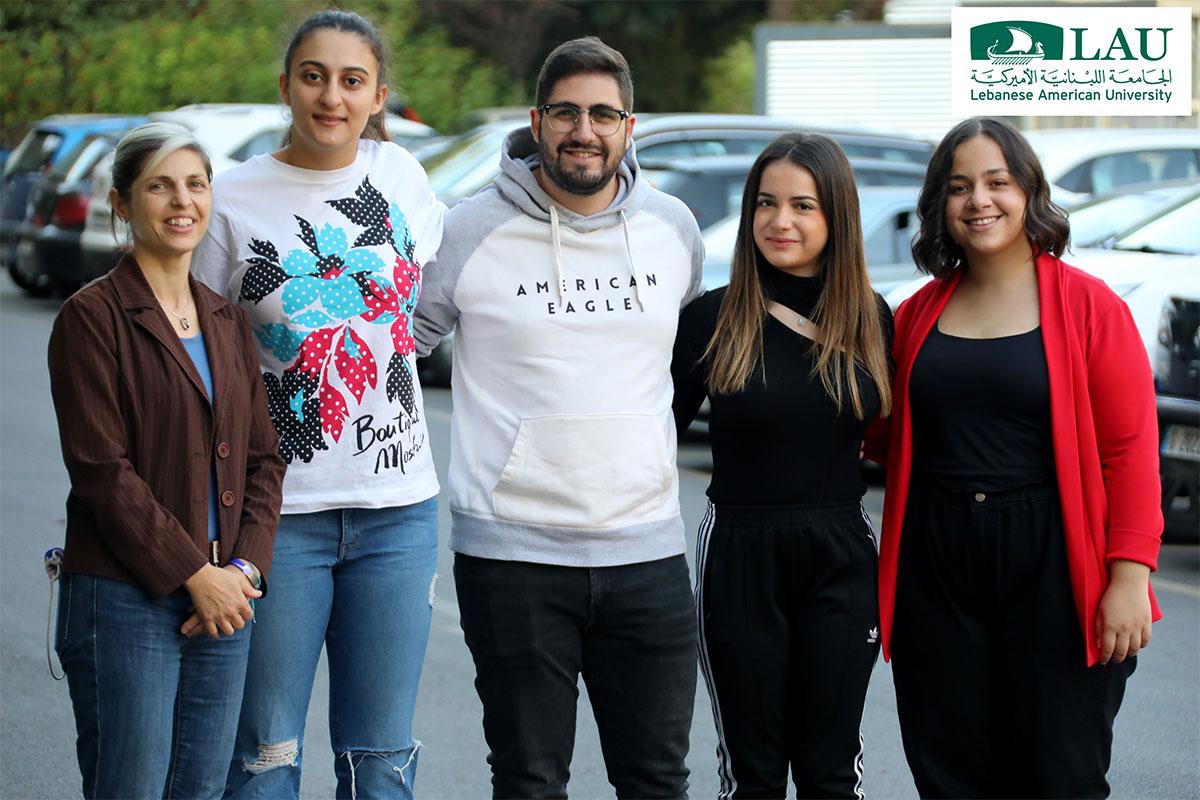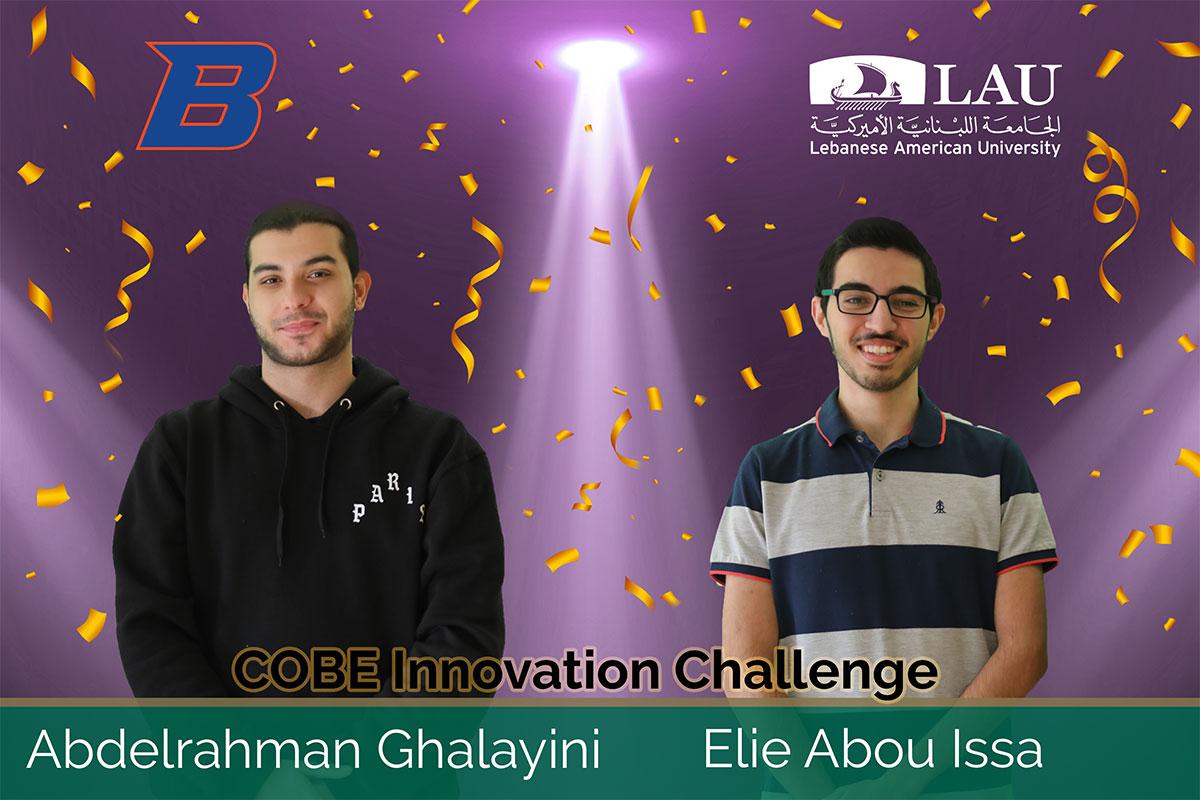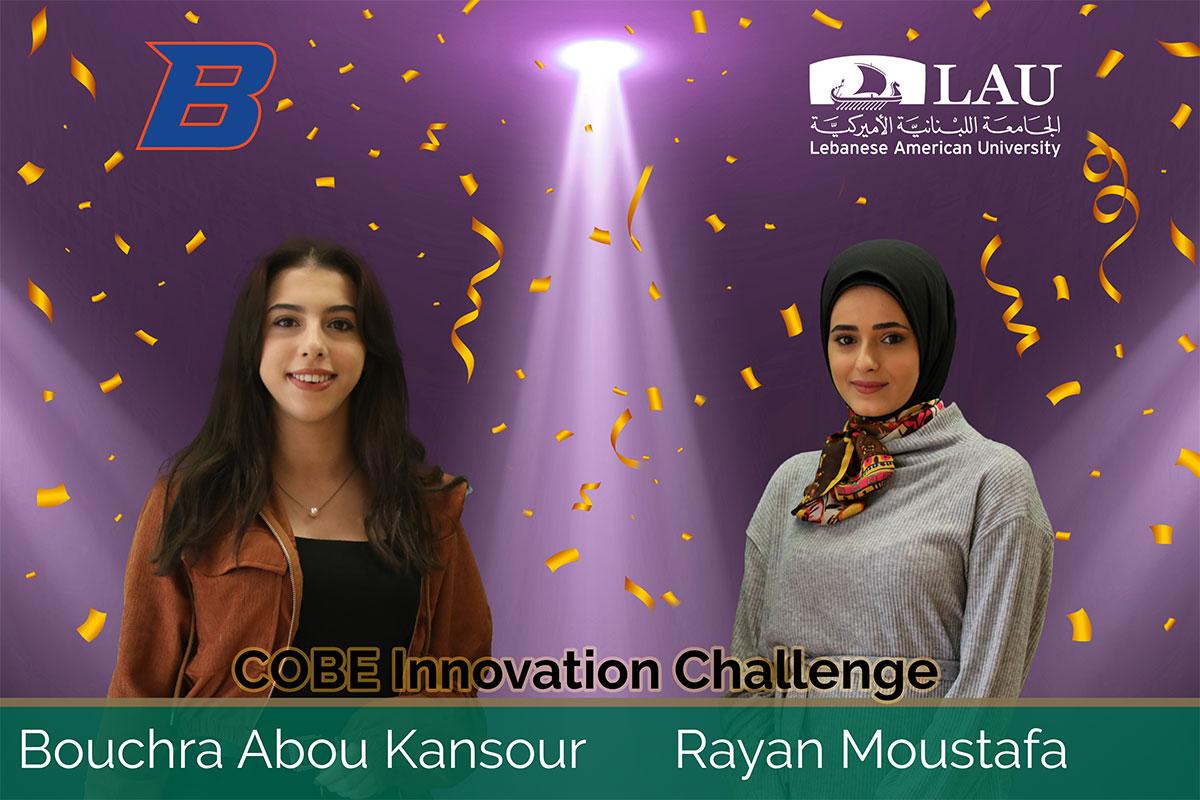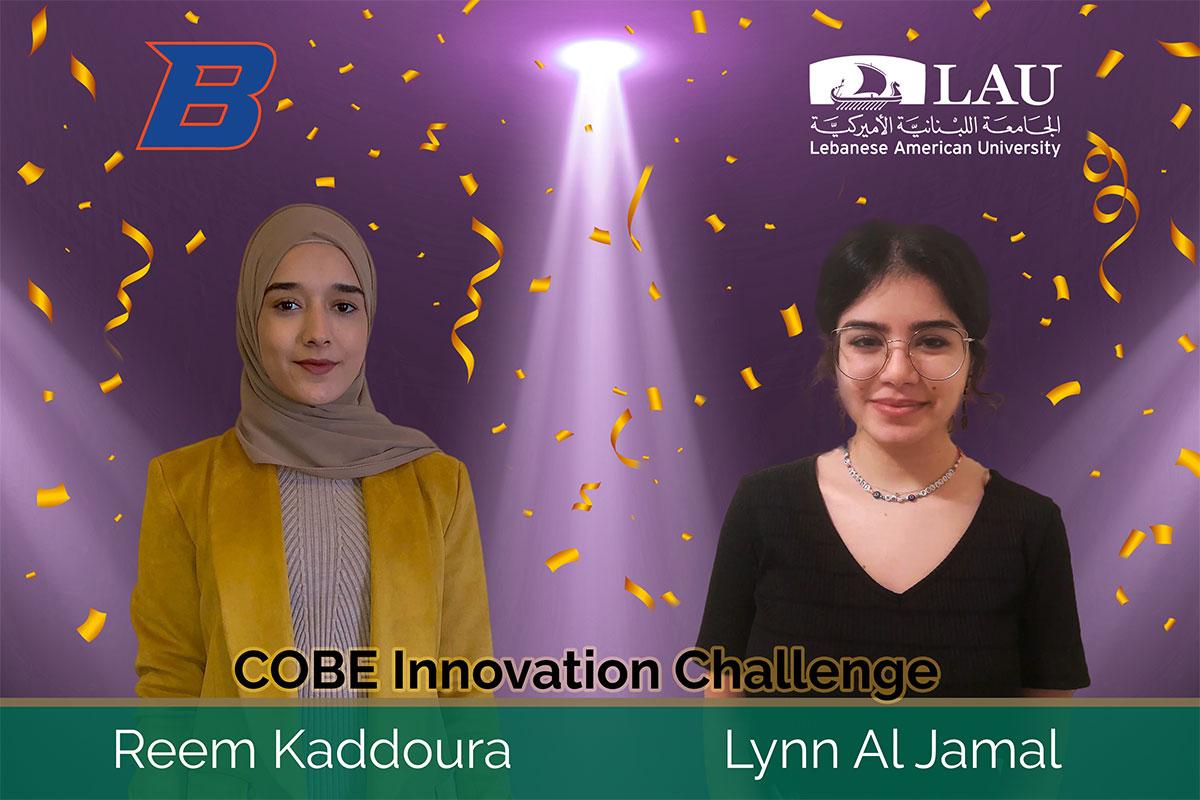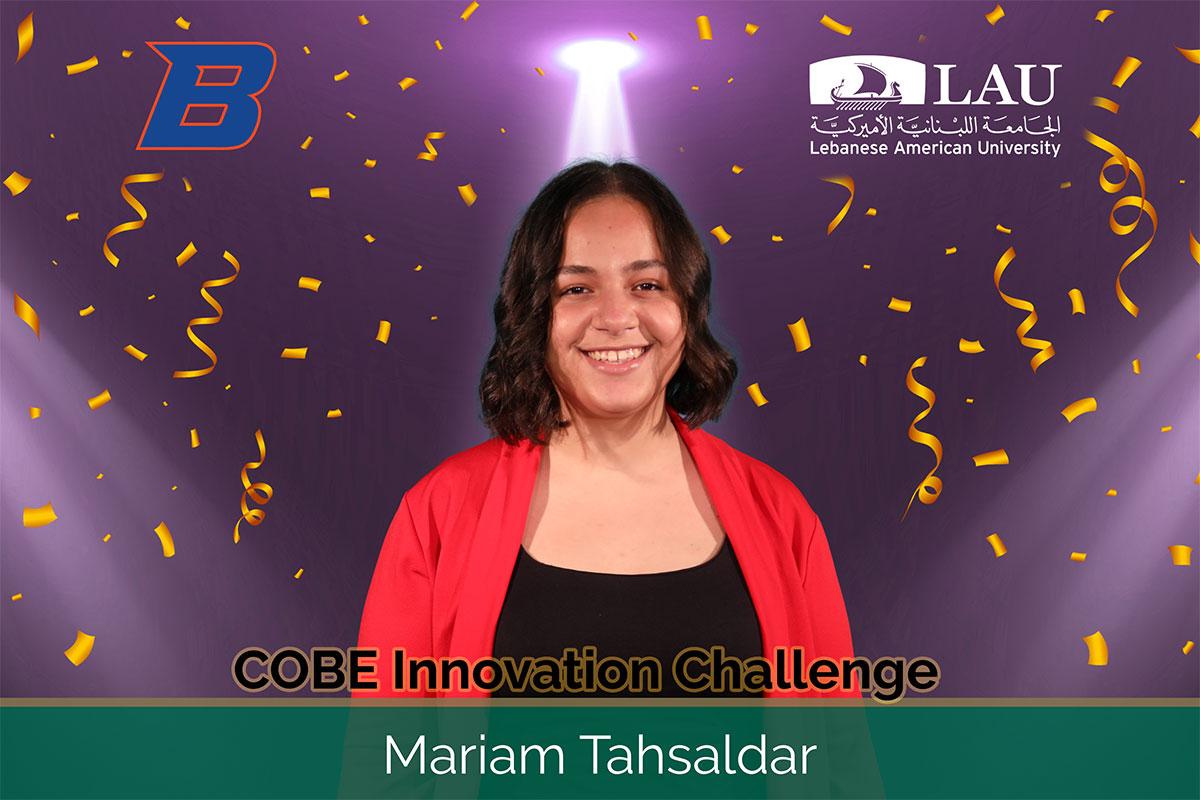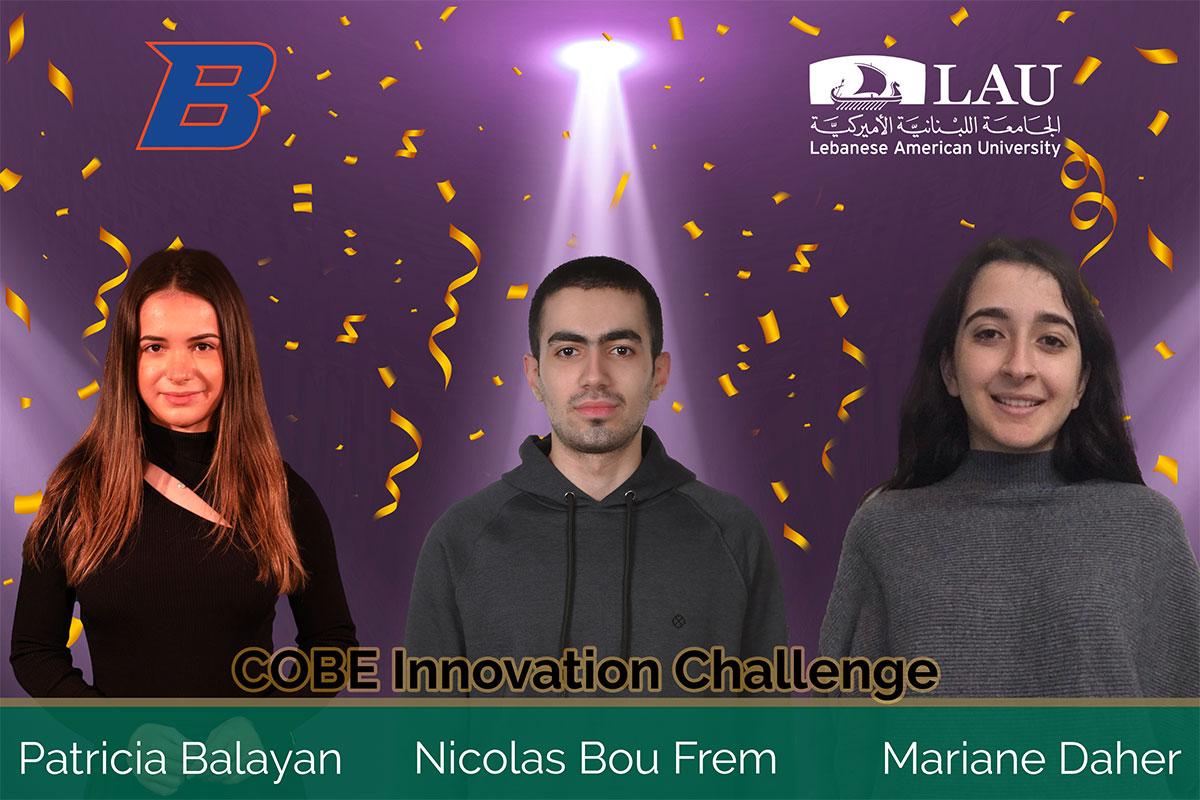LAU and Boise State University Collaborate on Virtual Exchange Program
Lebanese and US students collaborate on innovative solutions, overcoming communication challenges.
Students from LAU and Boise State University (BSU) embarked on a virtual exchange program funded by the US Embassy in Lebanon, turning difficulties into co-created, innovative solutions.
Through Flipgrid, an educational video app, 71 students worked on three projects aimed to engender cross-cultural dialog. The first of these projects was an ice-breaker activity whereby the students designed a new product/service for a grocery store. In the second, the students had to develop solutions to a problem that they imagined their cross-cultural counterparts were experiencing and then refined those innovative solutions by carefully listening to their counterparts’ comments.
In yet another project they had to work collaboratively to identify the strategic differentiators for a company addressing one of the 17 UN Sustainable Development Goals.
“When the students suddenly understood that a nine-hour difference translates into a 24-hour communication cycle, I got a lot of push-back,” said Dr. Jordan Srour, associate professor of operations management at the Adnan Kassar School of Business, who worked on designing the course. “One student even asked: whose crazy idea was this?”
One interesting solution, explained Dr. Srour, was a set of fire poles with embedded sensor technology and sprinklers that simultaneously alerted to and mitigated the spread of wildfires. “This project stuck in my mind as wildfires became a point around which the team members could really understand each other,” she said.
Another project that stood out was one developed in an individual assignment, allowing BSU students to safely return to in-person learning during the COVID-19 pandemic. LAU students developed an app – using BSU logos – that allows students to select a location on campus and then identify the route that takes them through the least crowded and most recently cleaned areas to ensure their safety.
“I was totally shocked,” said Dr. Srour, “as LAU students independently worked on a problem inspired by their conversations with BSU students. With the many problems happening in Lebanon, these students chose to focus their efforts on a problem related to their BSU counterparts.”
The experience has taught the students what no textbook can: how to listen.
“Of course, the technology has facilitated the communication, but the class’s major strength was the fundamentals of what it is to be a human with a problem that needs solving,” explained Dr. Srour.
“Apart from the nine hours’ time difference and some power cuts faced along the way, I found the program really engaging,” said senior student in information technology management Abdelrahman Ghalayini, “as it gave me a better idea of what it means to work with different cultures and time zones.”
But what he appreciated the most, he noted, was the chance to work with a university abroad and interact with students from different backgrounds. “This helped me expand my knowledge and come up with new ideas that led to completing the project.”
The course also helped improve the students’ critical skills.
“We had to come up with creative, data-driven, and interesting ideas throughout the semester, especially in the collaborative projects with BSU students,” said second-year student Mariam Tahsaldar, who is minoring in data analytics.
“I was happy that they learned more about Lebanon since they did not even know that we spoke English in the first place,” she added. “I also got to learn more about their country and vice versa.”
Moving beyond intellectual capital and pedagogical innovation, the project embraces the ideal of a university without borders.
“The collaboration with Boise aligns with all three pillars of LAU’s strategic plan,” said Dr. Srour. “I love the fact that we partnered with BSU and not a school in a well-known location like New York or California. It is so important for our students to learn that ‘global’ is an all-encompassing word – not just reserved for the world’s major cities.”
Projecting beyond that, she hopes to see LAU engage even more in virtual exchange experiences across the curriculum.
“One potential future for this modality would be in terms of language learning,” she said. “How wonderful would it be for LAU students to support BSU students in learning Arabic virtually?”
Associate Professor and Chairperson of the Information Technology and Operations Management Department Manal Yunis underlined the vital importance of such programs.
“Nowadays, internationalization is key to success,” said Dr. Yunis. “To be and to stay competitive, universities seeking high ranking levels set a variety of plans, one of which is investing in cross-cultural partnerships with other higher education institutions for research and teaching purposes.”
At the teaching level, she added, developing collaborative activities with international higher education institutions can yield transformative results with high impact. “Besides enhancing students’ engagement levels, such partnerships can help students build global perspectives in life and professional decisions, and can also prepare them for careers in a global and diversified economy.”
Furthermore, she noted, course partnerships foster a positive attitude toward the other culture and its people, which can with time help students eliminate wrong preconceptions, develop flexibility and cultural intelligence skills.
LAU students Abdelrahman Ghalayini and Elie Abou Issa, along with three students from BSU received the top award at BSU’s College School of Business and Economics Challenge (COBE) Innovation Challenge for their idea to convert waste energy from roadways to electricity using vertical turbines.
Other SDG-targeted projects on which LAU students collaborated with their BSU counterparts took the international prizes and were selected as the Dean’s Choice as well as the Judges’ Recognition Award.
